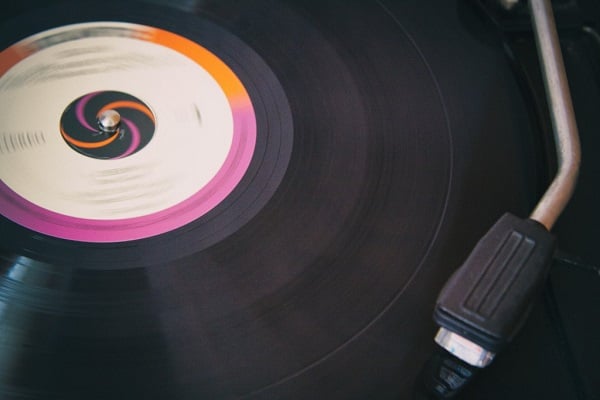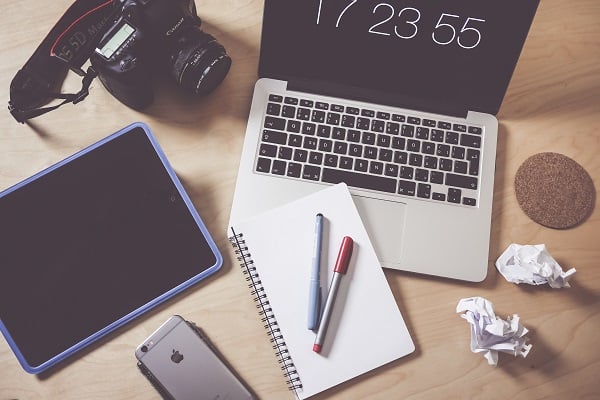5 Language Learning Strategies that Don’t Work (And Tips to Fix Them)
There’s nothing more frustrating than deciding to tackle a new language, then discovering several months in that you’re barely able to form a sentence, leading to you giving up on the language completely. Many times, your inability to progress can simply be the product of utilising an incorrect strategy or method of learning, and we’re here to help you out. Check out these 5 common language learning strategies that don’t work and a few tips to help you fix them!

Photo via Flickr
1. Academic classes
The Strategy: There’s nothing wrong with approaching language learning through traditional academic classes, but a lot of times people rely too heavily on their classes to help them conquer a foreign tongue, and this is one strategy that definitely falls flat!
The Fix: The easiest fix for the academic language blues is to supplement your learning outside the classroom. Make sure you spend the same amount of time (or more) speaking your target language with a native. An hour of talking French with a native French speaker will always far outdo several hours of studying on your own – and you’ll learn new vocab too!
Learning a new language? Take a free placement tests to see how your level measures up!
2. Movies & TV
The Strategy: Being able to watch movies and TV while learning a new language is pretty much every student’s dream! However, you’ll probably be very disappointed once you realize that ‘passive’ methods like this aren’t really an effective form of language acquisition.
The Fix: Instead of just plopping down on the couch to watch a movie or TV show, how about engaging with it a little more? Inflections, gestures, and body language are all a huge part of learning about a new language and culture, and it’s loads of fun to pause your show and try mimicking a certain scene. Also, be sure to take movies and TV shows in short, digestible doses. A 2-hour movie will bombard you with more language than you’re able to absorb in one go, so many teachers think that watching a mere 15 to 20 minutes a day will help you a lot more (if you’re engaging with the film), than a couple of hours of passive viewing.

Photo via Flickr
3. Music
The Strategy: Music is another great learning tool, but unfortunately, like movies and TV, falls in the category of passive listening. I mean, when was the last time you really listened to a song – even in your native language? You probably tend to zone it out after a while, which isn’t really helping your language learning cause.
The Fix: In order to make music an effective tool, you have to approach it in a different way. Instead of just popping on an album in Russian, how about learning a few of the songs so you can sing along? Not only will this improve your pronunciation, but you’ll also learn new words when you focus on the lyrics and what they mean. Another great option is to find covers of some of your favourite English songs in other languages. This way, you can sing along to something familiar, and learning the lyrics is a lot easier.
4. Interacting
The Strategy: While this may appear to be an obvious no-no, I’m going to go ahead and list it because it seems like language learners too often fall into the trap of only interacting with other learners. Why wouldn’t we? It’s easier to understand each other and your fellow classmates are usually at the same level as you.
The Fix: While getting together with other learners to practice speaking can be helpful, it’s unlikely you’ll move beyond your current level if they’re the only ones you’re interacting with. This can cause you to stagnate or hit a learning plateau. To avoid this malady, find a native speaker to try your skills out with on a weekly basis. Don’t know one in your area? The magic of the internet means you don’t even have to live in the same city or country as your language partner!

Photo via Flickr
5. Consistency
The Strategy: Because learning a new language requires a great amount of commitment and consistency, it’s easy to fall into the trap of using the same methods week after week. While maintaining that consistency is incredibly important, if your learning approach is stale you’ll never really get ahead.
The Fix: One of the most important things to remember when you embark on the journey of learning a new language is that you need to be flexible. Evaluate your learning methods constantly and don’t be afraid to think outside the box. Use all the tools available at your disposal, and when at a loss find new ones online. Remember, you alone are in charge of your language learning, and only you can determine the best course to help you achieve fluency.
Have you tried any of these strategies and found that they don’t work? What are your fixes and tips? Share them with us!
